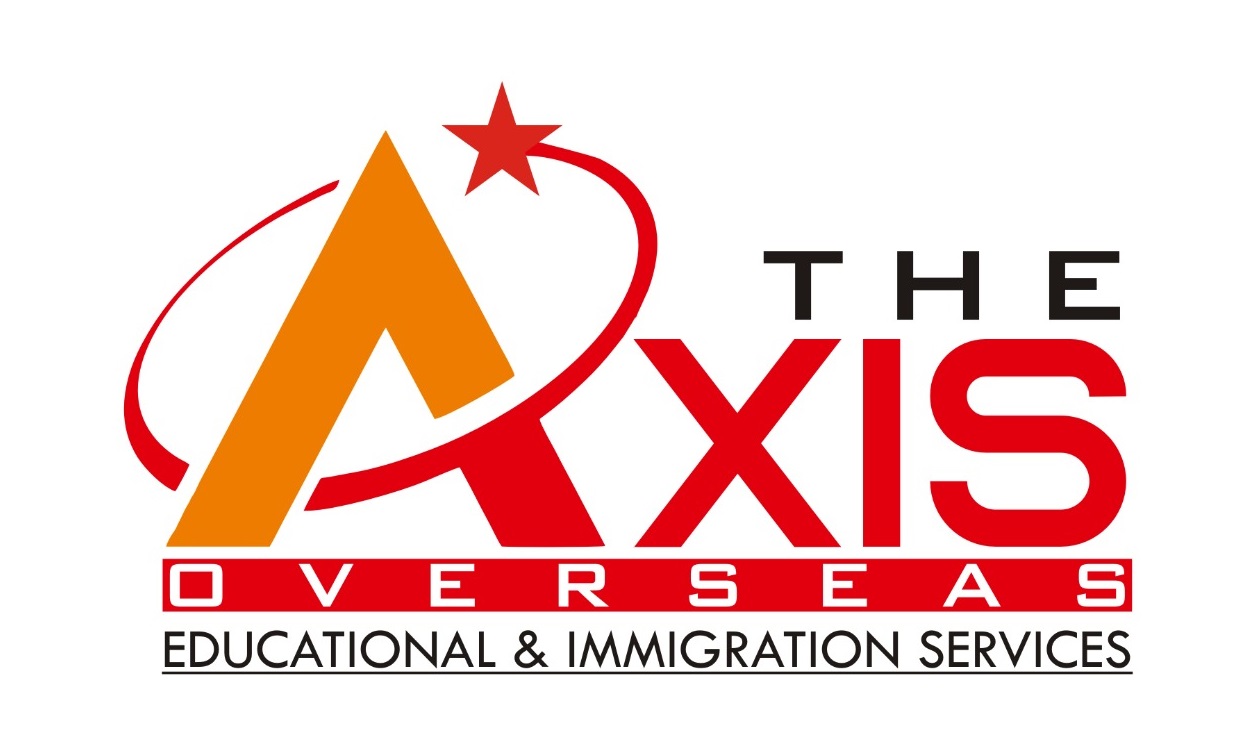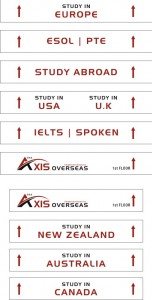» How do I obtain a study permit ?
Once you’ve been accepted by an institution for a program of study in Canada, you should apply for a study permit at the nearest Canadian diplomatic mission. The application process should begin at least three months prior to the commencement of classes. Students from some countries might also require permission which are issued at the same time as the study permit. Minimum documents required to apply for a study permit include: a valid passport; an original letter of acceptance from the institution; as well as evidence of adequate funds to cover tuition and living costs for you and any dependents, including return transportation. Interviews are sometimes required for clarification of information you have provided in your application. In some cases, a medical examination or an interview may also be needed. Once you submit a complete application it can take between four to six weeks to receive your permit. We recommend you apply at least three months in advance. Make sure all required documents are included.
» What can I do to speed up medical processing?
Set up your appointments as far in advance as possible. You could provide the examining physician with a pre-paid courier envelope for submission to Canadian High commission (CIC). Some students will not require a medical. It depends on your places of residence over the year immediately prior to your application.
» Can I visit my own doctor for my medical?
No,Canadian High commission (CIC) only accepts medical exam results from a Designated Medical Practitioners.
» What can I do if my study permit has been refused?
There is no appeal process, but you can apply again at a later time.
•if any of the information on the test report form has been altered e.g. band scores, photo, id
numbers etc.
• if an IELTS test report form is genuine.
This ensures that only genuine IELTS test report forms are accepted. Presenting a fake or altered test report form can have serious consequences for candidates.
» Will I require health insurance while I am in Canada?
International students are required by law to carry health insurance coverage. Though it is not possible to obtain an insurance policy from outside Canada, a plan should be secured within the first week of a student’s arrival. Each province administers its own public medical and health insurance plans, though some private and supplementary plans are also available. However, even if in instances where provincial coverage is available to international students at no cost, they must register with the health insurance authority in the province to ensure they are in fact covered. Your university/college should be able to advise you on this matter. Most major educational institutions have their own insurance plan for international students and will help you register and pay fees on arrival.
» Is there usually somewhere or someone I can turn to with any problems, issues or concerns I might have during the academic year?
AMost post-secondary institutions have an international student adviser assigned to assist international students and give them advice on housing, health insurance, financial issues and otherconcerns. Other services might include organizing orientation and special events, exchange opportunities and regular information sessions. Some institutions offer peer programs that match an international student with a Canadian student to help a newcomer with settling in on campus. Host family programs are also often available in which a Canadian family helps an international student integrate into Canadian life.
» Are international students eligible for scholarships? What financial assistance is available to international students?
Yes international students are eligible for some scholarships. The majority of scholarships available are for Masters or doctoral students. See the Awards section.
» Do I need to prepay my tuition fees before arrival?
No, unless your institution requires it. In fact, many institutions are not able to accept your fees until you arrive and register. However, you must show CIC officials that the funds are available and can be transferred to Canada. In exceptional circumstances, where there are local currency restrictions, which may hamper the timely transfer of funds, consulate(officers) might request that proof of an off-shore account in the student’s name or full payment of the tuition fees in advance.
•at least 6 weeks prior notice (for any special need requirements)
• a medical report/diagnostic report
• a written request
• two choices of dates (in case the special need requirement needs a longer period)
Special arrangements can be made for candidates with special needs, for example:
•Visual difficulties
• Hearing difficulties
• Speaking difficulties
• Specific learning difficulties such as dyslexia
• Permanent writing difficulties e.g. due to cerebral palsy
• Medical condition such as diabetes
The following can be provided for special needs candidates (please check availability with centre):
•If the candidate is dyslexic, extra time can be given on request sent from the Centre to Cambridge
• If a candidate has a problem with eyesight, we can provide an enlarged print
• Braille papers (contracted and uncontracted Braille)
• Lip-reading versions of listening papers
• The use of an amanuensis (someone who writes your answers for you as you dictate them)
Further information pertaining to special arrangements for such candidates is also available.
» Do I have to renew my study permit every year? How do I renew it?
YIn general, students will receive a study permit for the full period of their studies, e.g. three or four years. However, consulate( officer) has the authority to issue a permit for a one-year period only. To renew your permit, you must submit an application to the Case Processing Centre in Alberta, Canada PRIOR TO the expiry of your authorization. Forms are available at CIC Centers across Canada.
» How do I change from a visitor’s to a study permit while in Canada?
To change your status from that of visitor to student, you need to submit an application for a study permit at a high commissio abroad. You may have to leave Canada if you are called for an interview to determine your eligibility. This process can take four to six weeks.
» I am studying in Canada. If I want to change from a Bachelor’s to a Master’s Program do I need a new study permit? If I want to change to a different university, do I need a new permit?
You do not need to apply for a new permit if you are moving from one university to another university regardless of change in level – unless your permit specifies the name of your institution. If you are changing from a college to a university or vice-versa, you will require a new study permit. If you are studying in Quebec you will need a new CAQ if you change levels or institutions.
» How do I get my foreign credentials assessed?
The web site of the Canadian Information Centre for International Credentials, www.cicic.ca, provides useful information and referrals for international students wishing to have their credentials assessed.
» Is it mandatory to use the airport pick-up service offered by the schools?
NO !! The cost of a luxury limousine in Toronto and Vancouver is $30 to $40, less than half the school fees. The airport services have licenses and insurance for public cartage. We recommend that students use licensed insured carriers. If you use public transportation the cost is even less.
» Can I download the application forms from the internet for free?
YES !! Go to our information page for access to the FREE downloads.
» Can To enter Canada what general questions do I have to prove?
Accurate identification, Clean Medical Health, No Criminal violations, School acceptance and registration, Adequate financial resources for the period, proof you will and are able to return home.
» Can What is the Government filing fee to change a Visitor to a Student ?
17.$125. Dollars.
» Can Why do some students from Japan have work permits with their study?
This is the result of a treaty that allows Canadian students to work while in Japan.
» Can When is Homestay the best option for ESL students staying in Canada??
Homestay is the best option for short stay students (under 10 weeks) and for students under the age of 21 years, or students who have never travelled or lived on their own, students at a beginner English level not confident of their language skills.
» Do I have to pay all my home stay fees in advance?
No !! You can pay for the first month, and then choose month by month.
» Do I need a study permit to study in Canada?
Most students need a study permit to study in Canada, but there are some exceptions. To find out more, see the Related Links section at Canadian High commission (CIC)(CIC) website.
» What happens if I make a mistake on my application?
If you make a mistake on your application, it may be delayed or returned to you unprocessed. Anyone who is found to have previously studied or worked in Canada without authorization can be refused a permit to study.
» Why is the Off-Campus Work Permit Program not available to foreign students when they start their studies?
The likelihood of students quitting their study program is highest during the first few months of study. Canadian High commission (CIC) wants to ensure that work permits are issued to legitimate students. When they apply, these students will be required to prove they have been studying full time for six of the last 12 months at a participating institution.
» What are the eligible criteria to study in Canada?
You must have been accepted by a school, college, university or other educational institution in Canada. You must prove that you have enough money to pay for your: a. tuition fees b. living expenses for yourself and any family members who come with you to Canada and c.return transportation for yourself and any family members who come with you to Canada. You must be a law-abiding citizen with no criminal record and not be a risk to the security of Canada. You may have to provide a police certificate (depends on the requirement of Canadian High Commission). You must be in good health and willing to complete a medical examination, if necessary. You must satisfy an consulate(officer) that you will leave Canada when you have completed your studies.
» Am I allowed to return home for a visit or travel outside Canada during my studies?
If you leave Canada and want to return, you must have: • a valid passport or travel documents • a valid study permit if you are returning to study in Canada and • a valid temporary resident permit if you are a citizen of a designated country for which Canada requires a grant permission.
» Will I need to have an interview?
Once the consulate(officer) has reviewed your application, they decide if an interview is necessary. If so, the consulate (officer) will provide details of the time and place.
» Will I need a medical examination?
You and anyone traveling with you will need to have a medical examination if: 1.you need to apply for grant the permission and you will be in Canada for more than six months; 2.you will be studying or working in a school, hospital or some other facility where it is important to protect public health.

